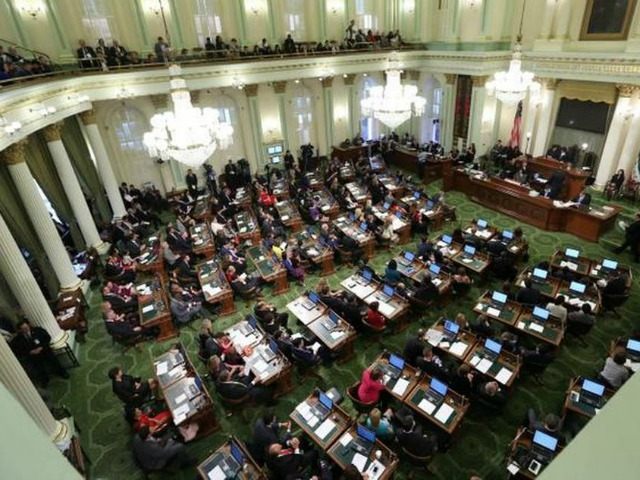The California legislature is responding to spiking Bay Area rents by moving bills that would force cities to loosen restrictive land use rules that have impoverished renters and created massive profits for apartment owners.
Year-over-year apartment rents at the end of March 2016 were falling hard in the Bay Area, with annual percentage decreases of 15% in Redwood City, 13% in Santa Clara, 8% in Palo Alto, and 5% in Oakland. But prices stabilized after the election of President Donald Trump ignited a new technology stock price boom, and have recently begun to take off and spike to new all-time-highs over the last 12 months.
But the most recent Zumber survey found that Bay Area one-bedroom apartment rents rose by 2 percent in July. San Francisco has the most expensive rent in the state at $3,450, followed by Mountain View at $3,060, and Redwood City at $2,970. The least expensive area rents were Vallejo at $1,270, followed by Napa at $1,540, and Santa Rosa at $1,550.
The fear of the return of double-digit rent increases is driving a new coalition of giant tech corporations, Democrat state legislators and pro-growth activists to demand that the tiny city of Brisbane, with a population of just 4,693, zone a 684-acre former railroad switching yard for affordable housing overlay zoning of 20-28 dwelling units per acre.
With the average home value in the City of Brisbane at $879,500, the city had initially planned to zone and develop the big parcel as “Brisbane Baylands”, featuring low-density single-family homes and mixed shopping areas. But the new pro-growth coalition stepped in to demand high-density affordable housing for up to 80 percent of the land use. At a 20-28 dwelling unit per acre zoning, the property could see 10,944 to 15,321 new units.
With cadres of pro-growth advocates demanding high-density approvals, versus angry homeowners appalled by the risk to property values and the character of the community, the City Council at its August 1 meeting tabled all development plans that have been stalled by the zoning controversy since 2005.
Breitbart News reported that California won a booby prize for the 13th time this year as the worst state to do business. It also picked up another booby prize as the worst state for spending money on infrastructure. Coupled with high taxes and over-regulation, exclusionary zoning policies by the Democrat-controlled California ;egislature and their environmentalist allies have drastically restricted California housing development.
But with the Legislative Analyst’s Office estimating that the state will need to increase construction by 100,000 housing units each year over the next decade to stabilize property prices and rents, the latest paralysis in developing Brisbane housing has caused Democrat state legislators to threaten to mandate state-wide zoning for affordable housing to force cities and counties to increase housing production.
Democrat David Chiu (D-San Francisco), a former San Francisco supervisor and Chairman of the California Assembly’s housing committee, told the San Jose Mercury News that city councils and county boards of supervisors are to blame for the “extremely negative and detrimental impact” on housing availability in the Bay Area. Chiu says he expects lawmakers to unveil a new set of affordable housing bills that will force cities to approve developments.
California already has a number of laws on the books to increase housing for middle and low-income residents, including the 35-year-old Housing Affordability Act (HAA). But cities and counties have delayed court-ordered compliance by extending environmental reviews for years.

COMMENTS
Please let us know if you're having issues with commenting.